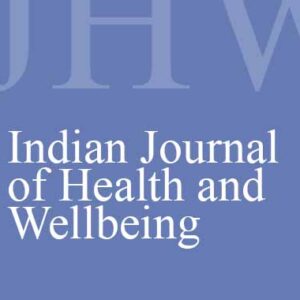
We examined the impact of the level of parental education on adolescent adjustment from early adolescence into late adolescence, across gender and grade groups comprising high school and Grade 12. Participants in this cross-sectional study consisted of 13
Pages: 16-20
Happy Paul and Pooja Garg (Indian Institute of Technology, Roorkee)
With the increased role of psychology in last two decades, research on subjective well-being has gained much attention and as an outcome its role at workplace has been explored well in applied research. However, how this significant positive aspect of life functions in everyday life at work remains unknown. The paper bridges this gap and explores the potential role of SWB to augment the tendency of employees to display extra-role behaviours at workplace. It was proposed that the subjective experience of well-being would enjoy a positive relationship with the demonstration of organizational citizenship behaviours. In this venture, authors after briefly defining the constructs and looking into the literature, summarize the findings from a sample of executives working in Indian manufacturing industry (N=240). The participants were assessed for subjective well-being (Life Satisfaction, Positive Affect and Negative Affect), and organizational citizenship behaviours (Altruism, Conscientiousness, Sportsmanship, Courtesy and Civic Virtue). The results of regression analysis revealed that the two-component configuration of SWB constituting cognitive and affective dimensions relate positively to the dimensions of OCB. It is argued that since the citizenship behaviours demonstrate the state of everyday life of an employee at workplace, it is pertinent for organizations to achieve optimal human experience and well-being. Practical implications are discussed along with the future directions for research.
Description
Pages: 16-20
Happy Paul and Pooja Garg (Indian Institute of Technology, Roorkee)
